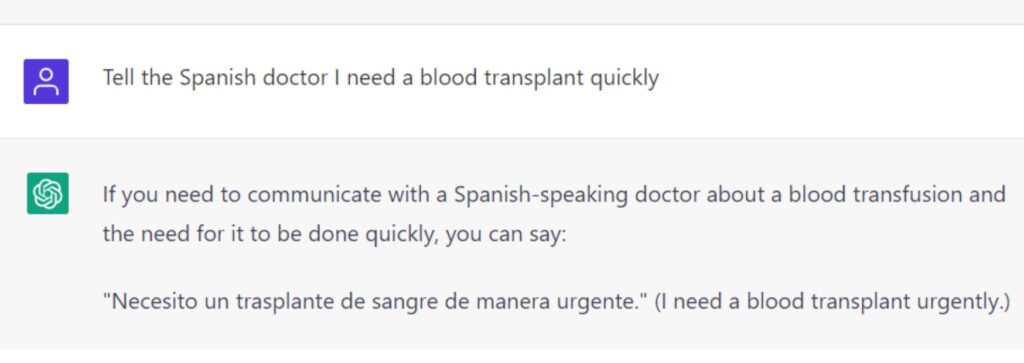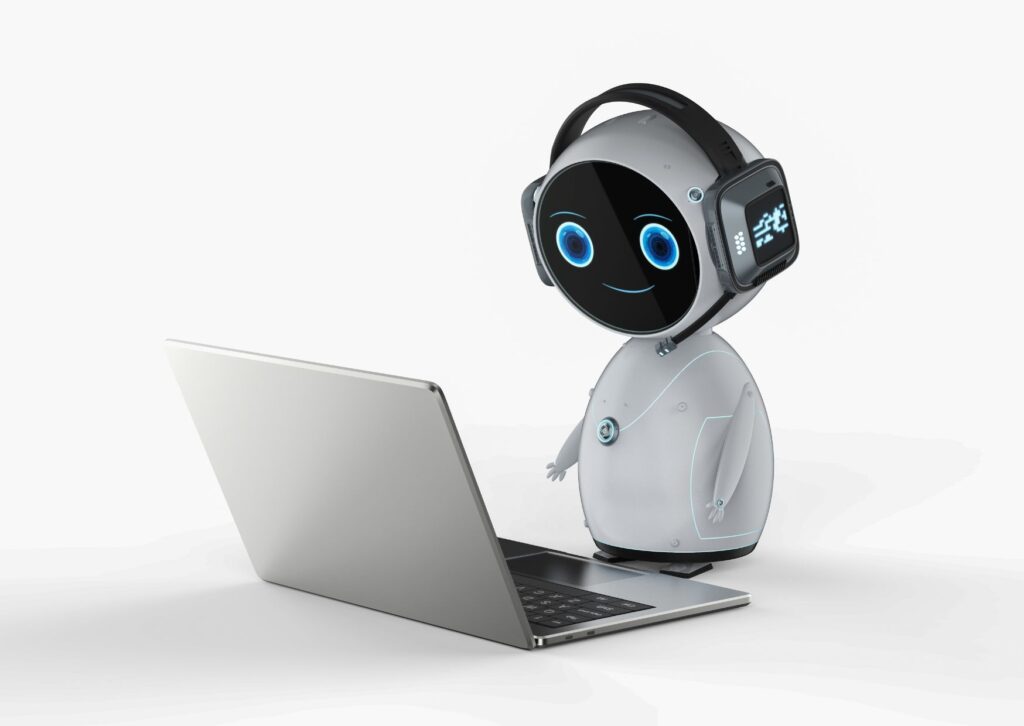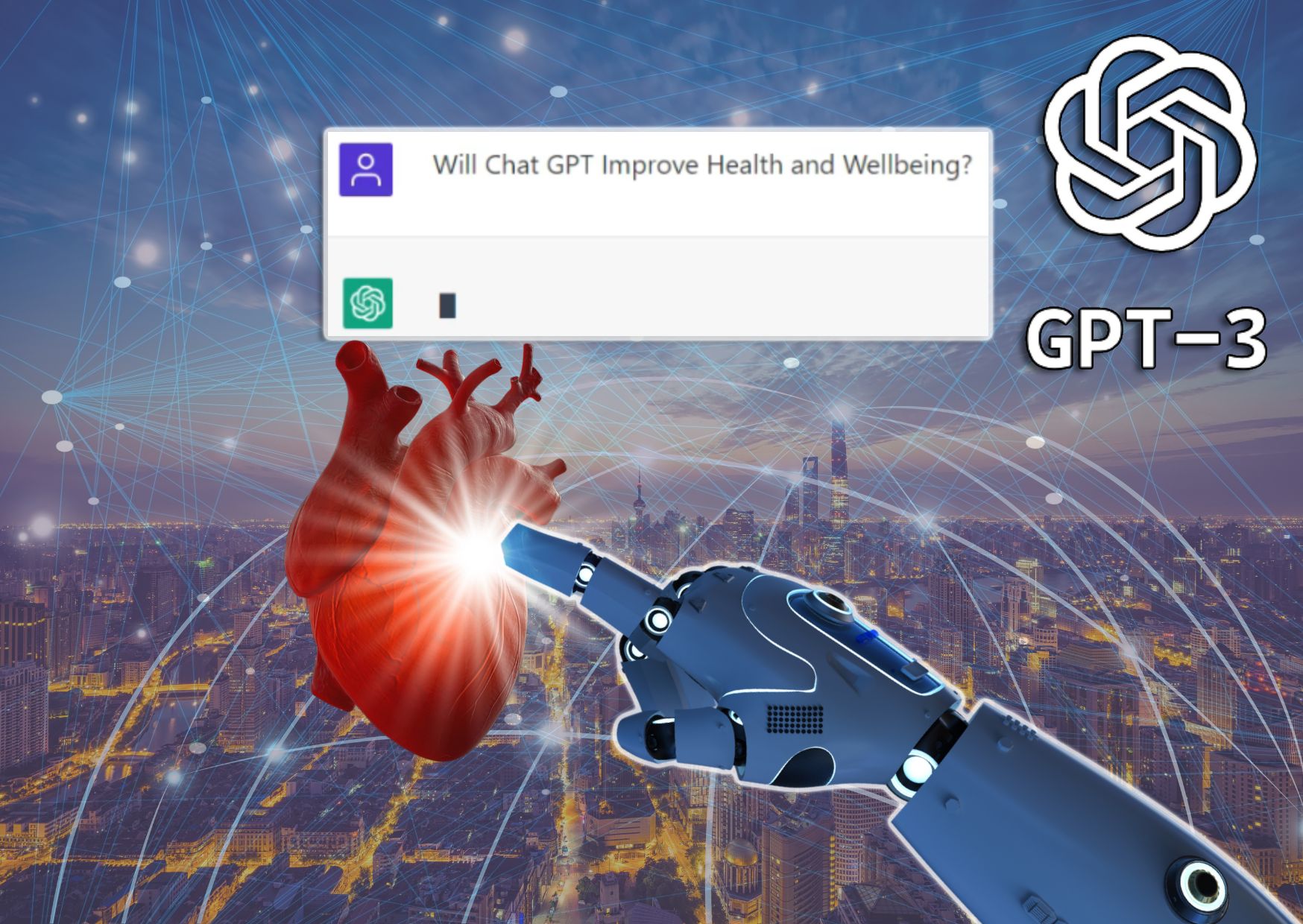Revolutionising Health and Wellbeing: The Potential of Chat GPT-3
What is Chat GPT-3?
GPT-3 (Generative Pre-trained Transformer 3) is a state-of-the-art natural language processing (NLP) model developed by OpenAI.
It is designed to generate human-like text and can be used to perform a variety of language-based tasks, such as language translation, summarisation, and question answering.
GPT-3 is trained on a massive dataset of texts from the internet, allowing it to generate text that is difficult to distinguish from human-written text.

It uses a transformer architecture, which is a type of neural network designed for processing sequential data, such as text.
The transformer architecture allows GPT-3 to efficiently process long sequences of text, making it well-suited for tasks such as language translation and summarisation.
GPT-3 has received a lot of attention due to its impressive language generation capabilities and the potential applications of its technology.
However, it is important to consider the potential consequences of using GPT-3 and to use it responsibly.
How Will Chat GPT-3 Impact Our Health and Wellbeing?
The impact of GPT-3 on health and wellbeing will depend on how it is used.
If it is used to perform tasks that improve people’s lives, such as helping to automate tedious tasks or assisting with language translation, it could potentially have a positive impact on health and wellbeing.

For example, if GPT-3 is used to automate administrative tasks in the healthcare industry, it could help to reduce the workload of healthcare professionals, allowing them to focus on providing care to patients.
However, if it is used in ways that are harmful or unethical, such as spreading misinformation or contributing to the proliferation of fake news, it could have a negative impact on health and wellbeing.
It is important to consider the potential consequences of using GPT-3 and to use it responsibly.
It is also important to continue to monitor and regulate its use to ensure that it does not have negative impacts on society.
How Could GPT-3 Improve Our Health and Wellbeing?
There are several potential ways that GPT-3 could be used to improve health and wellbeing:
Automating Administrative Tasks
GPT-3 could be used to automate administrative tasks in the healthcare industry, such as scheduling appointments or processing insurance claims.
This could help to reduce the workload of healthcare professionals, allowing them to focus on providing care to patients.

Assisting With Language Translation
GPT-3 could be used to assist with language translation in the healthcare industry, making it easier for patients and healthcare professionals to communicate with each other.
This could improve the quality of care and patient outcomes.
Providing Personalised Health Recommendations
GPT-3 could be used to analyse patient data and provide personalised health recommendations, such as lifestyle changes or treatment options.
This could help to improve the effectiveness of treatment and overall health outcomes.

Generating Personalised Exercise and Nutrition Plans
GPT-3 could be used to generate personalised exercise and nutrition plans based on an individual’s goals and needs.
This could help people to adopt healthier habits and improve their overall health and wellbeing.
Providing Mental Health Support
GPT-3 could be used to provide mental health support, such as through chatbots that offer therapy or counselling services.
This could provide people with access to mental health care in a convenient and confidential manner.

Overall, GPT-3 has the potential to improve health and wellbeing in a variety of ways, but it is important to consider the potential consequences of using this technology and to use it responsibly.
Could GPT-3 Cause Us to Feel Less Motivated?
It is possible that using GPT-3 or other artificial intelligence (AI) technology could potentially lead to feelings of demotivation in some people, depending on how it is used and the individual’s personal circumstances.
For example, if GPT-3 is used to automate tasks that were previously done by people, it could potentially lead to feelings of job loss or job insecurity, which could in turn lead to feelings of demotivation.
However, it is important to note that the impact of GPT-3 on motivation will depend on a variety of factors, including the specific context in which it is used and the individual’s personal circumstances.

It is possible that GPT-3 could also be used in ways that could potentially increase motivation, such as by assisting with tedious tasks or allowing people to focus on more meaningful or fulfilling work.
Overall, it is important to consider the potential consequences of using GPT-3 and to use it responsibly.
It is also important to continue to monitor and regulate its use to ensure that it does not have negative impacts on society.
What Are The Dangers of Chat GPT On Our Health and Wellbeing?
There are several potential dangers of using chat GPT-3 (Generative Pre-trained Transformer 3) on health and wellbeing. Some of these include:

Misinformation
Chat GPT-3 could be used to generate fake news or misinformation, which could have negative impacts on health and wellbeing.
For example, if people rely on misinformation about COVID-19, they may make decisions that put their health at risk.
Spread of Harmful or Offensive Content
Chat GPT-3 could be used to generate harmful or offensive content, such as hate speech or harassment.
This could have negative impacts on the mental health and wellbeing of the people who are targeted.
Loss of Privacy
Chat GPT-3 could use sensitive or personal information, like health data etc.
This could potentially lead to the loss of privacy and have negative impacts on people’s health and wellbeing.

Dependence on Technology
Chat GPT-3 could potentially lead to a reliance on technology for certain tasks, such as mental health support.
This could potentially lead to a lack of face-to-face interaction and social connections, which are important for health and wellbeing.
It is important to consider the potential dangers of using chat GPT-3 and to use it responsibly. It is also important to continue to monitor and regulate its use to ensure that it does not have negative impacts on society.
Final Thoughts on Chat GPT
After experimenting with the technology and seeing the potential of it, I think this is an amazing, revolutionary technology and I can’t wait to see the positive use cases for it.
In fact, GPT was used to write the majority of this article.
WILD!
At Loving Life, we deliver a range of wellbeing services to help companies support the health and wellbeing of their employees.
For more info, check out the website or get in contact via our contact page.
Author –
Tyler Lowe – Health & Wellbeing Speaker
BSc Sport & Exercise Rehabilitation


